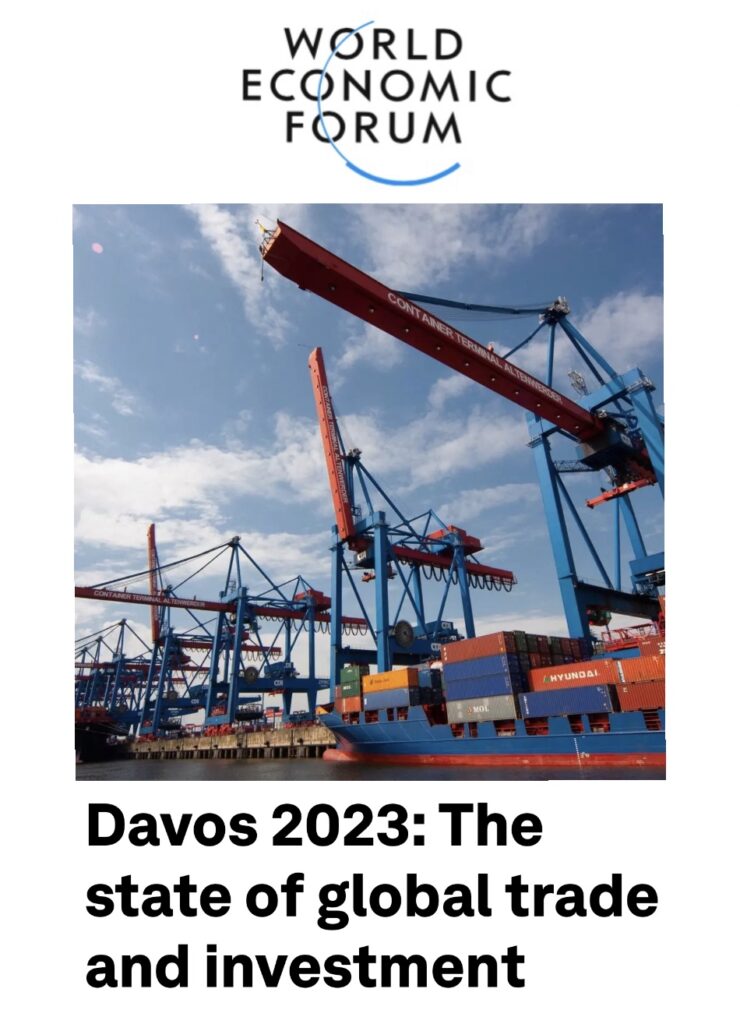Davos 2023: The state of global trade and investment
Trade and investment emerged as an overarching theme in this year’s Annual Meeting in Davos. Over the last 12 months, despite widespread inflation; supply chain issues lingering since the COVID-19 pandemic; geopolitical shocks, including Russia’s invasion of Ukraine; and, talks of deglobalization and geo-economic fragmentation, global trade touched a record volume of 32 trillion USD.

Yet, there is concern that various headwinds will lead to a significant global economic downturn. Nonetheless, Annual Meeting 2023 participants, such as Kristalina Georgieva, the Managing Director of the International Monetary Fund, urged governments and the private sector to “be pragmatic, collaborate” and “keep the global economy integrated for the benefit of all of us.”
But what lies on the road ahead?
“Despite all problems with the global commons we face today, we can’t solve them without multilateralism, cooperation and trade. We should not throw out the baby with the bathwater,” emphasised World Trade Organization (WTO) Director General Ngozi Okonjo-Iweala.
Likewise, many speakers observed that despite the polycrisis we find ourselves in threatening a fragmentation of global trade, multilateralism and cooperation remain effective tools for prosperity. If the world decouples into even two blocks that would cost us 5% of real global GDP. Global economic fragmentation, including friendshoring, is bound to be expensive because it will lead to inefficiencies and duplication and thus to inflation.
Trade and investment facilitation to spur development have resulted in significant real cost savings and increased incomes. In its sixth year of operation, the Global Alliance for Trade Facilitation received renewed support, as announced by the USAID Administrator Samantha Power.
As globalization evolves in the face of shifting geopolitical, demographic and environmental realities, it must become more sensitive to labour issues and inequality. A singular focus on the least cost model of globalization must make way for one that caters for environmental and social constraints as well. Deeper stakeholder engagement is needed to better integrate and implement labour rights and supply chain due diligence in our economic systems.
Let us not, in the new version of globalization, lose sight of who we want to benefit from our vision and from the economic opportunity that we want to create. And that is, let us not lose sight of the people that comprise our economies, who are not just consumers, but also workers, family members, community members,
Source:UNCTAD
You must be logged in to post a comment.